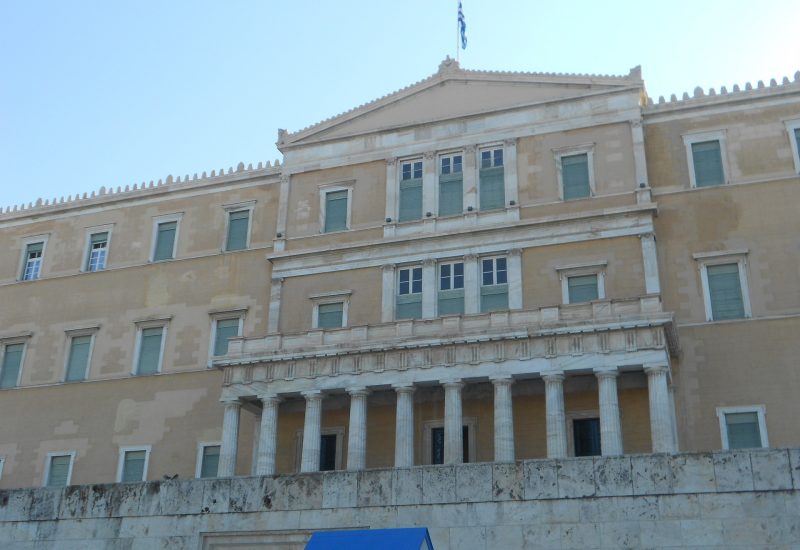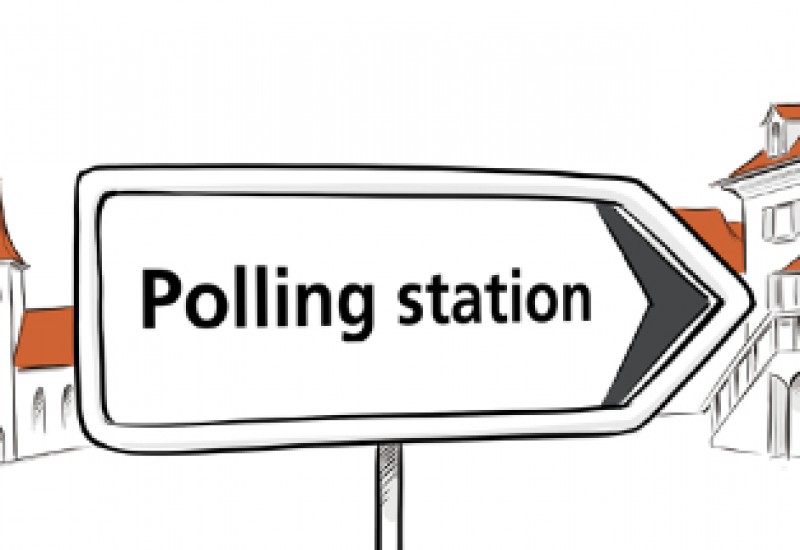08/11/2023
International Conference on “Militant Democracy and Constitutionalism: Do procedural aspects of democracy affect its substance?”Call for Papers: Deadline by February 10, 2024
27/06/2022
Rethinking the U.S. Constitutional Amending Process After the Dobbs Decision
05/05/2022
Tsatsos Foundation Forum 2022 “Constitution – Economy – Europe”
15/07/2021
What Comparative Law teaches us about the Spanish Constitutional Court’s dealings with Covid
23/06/2021
Constitutional Reform in Russia
Welcome to the Constitution-Making and Constitutional Change blog by the Research Group of the IACL
Here is the official blog of the research group on constitution-making and constitutional change operating under the International Association of Constitutional Law. This is a blog open to all. We hope to provide a forum for interaction and discussion on all topics related to constitution-making and constitutional change. Lets share information and analysis of the ongoing developments in our countries and the relevant theoretical debates: lets blog.
- February 10, 2021
- 5:09 pm
- Constitutional Change
by Agustín Ruiz Robledo, Professor of Constitutional Law at the University of Granada
- February 1, 2021
- 2:27 pm
- Constitutional Change
by Ioannis A. Tassopoulos (LL.B. 1986, hons, University of Athens; LL.M. 1987, S.J.D. 1989 Duke Law), is Professor of Public Law, National and Kapodistrian University of Athens. itassop@pspa.uoa.gr
- December 4, 2020
- 5:14 pm
- Constitutional Change
by Markus Kern/Fabian Schmid.
On November 29, 2020, the Swiss electorate had to vote on two Popular Initiatives:
the Popular Initiative “For responsible businesses – protecting human rights and the environment” and
the Popular Initiative “For a ban on financing war material manufacturers”
- September 29, 2020
- 2:15 pm
- Constitutional Change
by Nora Camenisch-Ehinger and Markus Kern, University of Bern.
Due to a backlog caused by the Covid-19-epidemic, the Swiss electorate had five proposals on its plate on September 27, 2020. In most cantons and municipalities additional decisions had to be taken on cantonal or local issues. The turnout was comparatively high at around 59%, sign of the strong mobilization of the political questions at stake.
- February 10, 2020
- 2:19 pm
- Constitutional Change
by Prof. Markus Kern / Fabian Schmid, University of Bern
On February 9, 2020, two proposals were up for decision by the Swiss electorate:
– the Popular Initiative claiming “more affordable homes” as well as
– a referendum concerning a ban on discrimination based on sexual orientation in criminal law
The Popular Initiative was rejected by 57.1% of the Swiss population and by all but 4½ of the cantons, whereas the amendment of criminal law was clearly accepted by a majority of 63.1% of the voters. Electoral turnout was at 41.7% resp. 40.9%.
Tag Cloud
abortion
Albania
amendment
Article V
Brexit
Catalan referendum
Catalonia
constituent power
constitutional length
constitutional referenda
constitutional referendum
constitutional reform
Denmark
Egypt
EU
EU membership
financial crisis
Finland
Greece
Greek referendum
human rights
Hungary
immigration
Ireland
Italy
judicial review
Poland
popular initiative
referendum
referendums
renewable energy
rule of law
same sex marriage
Scottish Independence
secessionism
self-determination
Spain
state of emergency
Swiss referendum
Switzerland
taxation
Tunisia
UK
UK Constitution
USA
Convenor
Xenophon Contiades,
Professor of Public Law and Dean, University of Peloponnese, Managing Director, Centre for European Constitutional Law
xcontiades@hotmail.com,
centre@cecl.gr
Blog master
Alkmene Fotiadou, Dr. iur.,
Centre for European Constitutional Law
alkmenef@gmail.com
Publications
05/02/2021
New Challenges to Constitutional Adjudication in Europe: A Comparative Perspective
05/02/2021
Democratic Decline in Hungary: Law and Society in an Illiberal Democracy
05/02/2021
Quasi-Constitutionality and Constitutional Statutes: Forms, Functions, Applications
03/02/2021
Courts, Politics and Constitutional Law: Judicialization of Politics and Politicization of the Judiciary
03/02/2021
Judicial Law-Making in European Constitutional Courts
03/02/2021
The Law and Legitimacy of Imposed Constitutions
03/02/2021
Asymmetry, Multinationalism and Constitutional Law: Managing Legitimacy and Stability in Federalist States
03/02/2021
Rule of Law, Common Values, and Illiberal Constitutionalism: Poland and Hungary within the European Union
03/02/2021
Dynamic Federalism: A New Theory for Cohesion and Regional Autonomy
03/02/2021
Populist Challenges to Constitutional Interpretation in Europe and Beyond
02/02/2021
Peace, Discontent and Constitutional Law: Challenges to Constitutional Order and Democracy
01/02/2021
Law, Violence and Constituent Power: The Law, Politics And History Of Constitution Making
29/01/2021
Constitutional Change and Popular Sovereignty: Populism, Politics and the Law in Ireland
29/01/2021
Icelandic Constitutional Reform: People, Processes, Politics
13/12/2018
The Law and Legitimacy of Imposed Constitutions
11/09/2018
The Nordic Constitutions – A Comparative and Contextual Study
22/03/2018
New Challenges to Constitutional Adjudication in Europe ‒ A Comparative Perspective
22/03/2018
The Transformation or Reconstitution of Europe
19/09/2017
Democratic Decline in Hungary. Law and Society in an Illiberal Democracy
19/09/2017
The Foundations and Traditions of Constitutional Amendment
Members of the Group
- Thomas Fleiner,
Professor Emeritus of Public Law, University of Fribourg, Former President of the Executive Committee of the IACL - Cheryl Saunders,
Laureate Professor, Melbourne Law School - Pankhuri Agrawal,
- PhD Scholar, NALSAR, Hyderabad LL.M-Business Laws, NLSIU, Bangalore
- Richard Albert,
Professor of Constitutional Law, Boston College Law School - Anneli Albi,
Professor of European Law, Law School, University of Kent - Nicholas Aroney,
Professor of Constitutional Law, The University of Queensland Australia - Ringolds Balodis,
Professor of Law, University of Latvia - Dr. Samo Bardutzky,
Research Associate, University of Kent Law School - Abraham Barrero Ortega,
Associate Professor of Constitutional Law, University of Seville - Omar Bendourou,
Professor of Constitutional Law, University of Mohammed V at Souissi Morocco - Dr. Paul Blokker,
University of Trento - Dr. Malik Boumediene,
Maitre de conférences, University of Toulouse - Joshua Braver, J.D.,
Yale Law School - Xenophon Contiades,
Professor of Public Law, University of Peloponnese, Director, Centre for European Constitutional Law - Ian Cram,
Professor of Comparative Constitutional Law, University of Leeds - Jean-Philippe Derosier,
Professor, Université de Rouen - Rosalind Dixon,
Professor of Law, Director, Comparative Constitutional Law Project, Gilbert + Tobin Centre of Public Law, Deputy-Director, HSF Law & Economics Initiative, UNSW Australia - Tímea Drinóczi,
Professor, University of Pécs, Faculty of Law, Hungary - Massimo Fichera,
Post-Doctoral Researcher, University of Helsinki - Dr. Ilton N. Robl Filho,
Academia Brasileira de Direito Constitucional
- Michèle Finck,
Doctoral Researcher, University of Oxford - Alkmene Fotiadou,
Dr. iur, Centre for European Constitutional Law - Jörg Gerkrath,
Professor, University of Luxembourg - Siri Gloppen,
Professor, University of Bergen - Jurgen Goossens,
Ph.D. Researcher, Public Law Department, Ghent University - Tania Groppi,
Professor of Public Law, University of Siena - Irene Sobrino Guijarro,
Assistant Professor of Constitutional Law, University of Seville - Bianca Gutan,
Professor of Constitutional Law and Human Rights Law, “Lucian Blaga” University of Sibiu - Dr. Michael Hein,
Research Fellow, University of Göttingen - Eirik Holmøyvik,
Associate Professor of Law, University of Bergen - Claudia Josi,
Adjunct Professor, Santa Clara University School of Law - Soumaya Khammassi,
- Ph.D. at the Administrative Court of Tunisia Judge
- Helle Krunke,
Professor of Constitutional Law, University of Copenhagen - Prof.dr. Henk R.B.M. Kummeling,
Distinguished University Professor and Professor of Constitutional Law, Utrecht University, Extraordinary Professor, University of the Western Cape, South Africa - Juha Lavapuro,
Associate Professor of Public Law, University of Tampere - Jónatas E.M. Machado,
Associate Professor of Constitutional Law, University of Coimbra - John F. McEldowney,
Professor of Law, University of Warwick - Giorgi Meladze,
Center for Constitutional Research, Ilia State University - Giorgi Meladze,
Center for Constitutional Research, Ilia State University - David Gwynn Morgan,
Distinguished Professor of Law at Kuwait International Law School
- Christina Murray,
Professor of Constitutional and Human Rights Law, University of Cape Town - Anu Mutanen,
Researcher, LL.D., M.Sc. (Admin.), University of Helsinki - Tuomas Ojanen,
Professor of Constitutional Law, University of Helsinki - Gianluca P. Parolin,
Assistant Professor, The American University in Cairo - Alicia Pastor y Camarasa,
PhD Candidate at University of Louvain - Janis Pleps,
Lecturer of Law, University of Latvia - Agustín Ruiz Robledo,
Professor of Constitutional Law, University of Granada - Angel Rodriguez,
Professor of Constitutional Law, University of Malaga - Dr. Yaniv Roznai,
Assistant Professor, Radzyner School Οf Law, Interdisciplinary Center (IDC), Herzliya, Israel, Post-Doctoral Fellow, Hauser Global Law School, New York University - Janne Salminen,
University of Turku - Antoine Sfeir,
Professor of Law, University of Lebanon - Ali Shirvani,
PhD researcher, Xiamen University - Eivind Smith,
Professor, University of Oslo - Zoltán Szente,
Professor of Law, National University of Public Service, Budapest - Ioannis Tassopoulos,
Associate Professor of Public Law, National and Kapodistrian University of Athens - Björg Thorarensen,
Professor of Law, Faculty of Law, University of Iceland - Dario Tosi,
Professor of Public Law, University of Valle D’ Aosta - Irina Tretyak,
- Associate Professor of Dostoevsky Omsk State University, Omsk, Russia
- Nora Camenisch-Ehinger,
University of Bern - Markus Kern,
University of Bern






